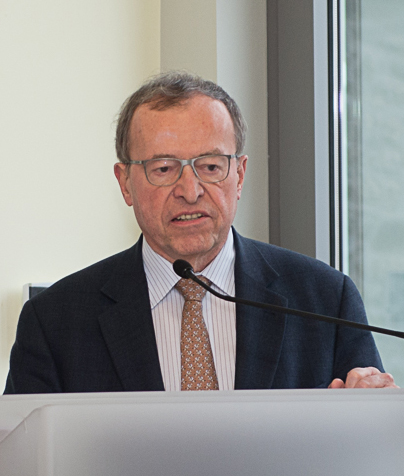© Oleg Boshkov

© Oleg Boshkov

Mr President,
Mr and Mrs Mayor,
Honorable Members of the General Committee,
Ladies and Gentlemen,
My chairman Prince Laurent had do leave for the Cabo Verde islands where he is representing Belgium at an FAO meeting.
He is very sorry to miss your prestigious celebration and asked me to convey his congratulations.
Eighteen years ago, he started a Foundation that strives to reduce the use of animals in laboratories and provides free veterinary care to animals owned by people in difficult social situations. At the outset, we negotiated with the two Belgian “Veterinary Councils” to establish an income ceiling and a procedure of controlled access to avoid issues of unfair competition.
Today a network of five dispensaries across the three regions of Belgium provides, free of charge, more than one thousand consultations a month, administered by over thirty vets supported by volunteers, secretaries, and cleaning personal, all working part-time supported by the Foundation.
In 2012, we started working with the veterinary faculty at the Gent University. The veterinary students supervised by the staff, make their first steps in daily practice. Gent was granted an EAEVE (European Association for the Evaluation of Veterinary Education) label of excellence for its education in the dispensary.
In 2013, we launched a similar initiative with the veterinary faculty in Liege. Given its current success, I hope that this model - which meets social, animal welfare and educational needs - can soon be expanded to other European countries.
For the last four years we provided winter night shelter near the Brussels Central Station, to homeless with dogs, who oppose quitting their companion for the night.
I must confess that for all but the last activity our customers are pets, including about 50% of cats, of no concern to your federation.
Where the objectives of the FCI and our Foundation concur is a further aim of the Foundation, to become more active in supporting the use of animals, mainly dogs, in animal-assisted intervention. There is overwhelming evidence of the value of this type of approach, although not fully scientifically accepted, and we are firmly committed to developing our involvement in this exciting and hope-inspiring field.
For a retired person living alone, a homeless person, an elderly person in a nursing home, a sick person in hospital, isolation can be absolute and long term. In such cases, a pet has an indisputably important social role to play.
But it is not only in these difficult situations that having a pet is so important. For children, having a pet teaches respect, compassion and responsibility for another living creature, values which contribute to society in an undeniably positive way.
I look forward to finding room or collaboration between FCI and us.
To conclude I want to extend to your federation, Mr de Santiago and the members of the Committee, but also to the authorities of the city of Thuin who welcome us today, Prince Laurent and myself’s warmest congratulations for the achievements of FCI over the last years.
And wish you many returns of the day!
Thank you.